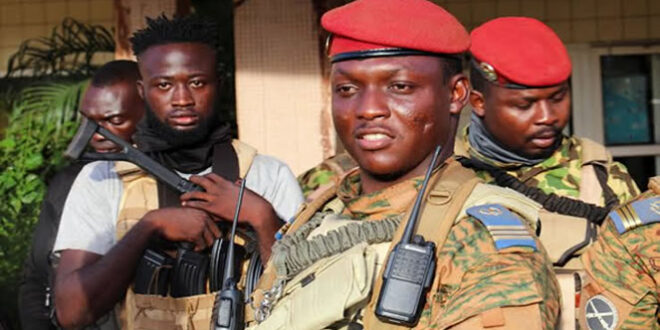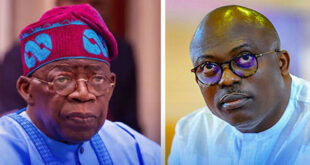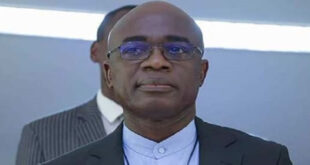The military-led government of Burkina Faso has announced that it successfully foiled a major coup attempt aimed at toppling junta leader Captain Ibrahim Traoré, accusing exiled former army officers in Ivory Coast of masterminding the operation.
Burkina Faso’s military-led government has announced that it successfully thwarted what it described as a “major coup plot” targeting junta leader, Captain Ibrahim Traoré, according to a report by the BBC on Tuesday.
Burkina Faso’s Security Minister, Mahamadou Sana, disclosed in a televised address on Monday that both active and retired soldiers, allegedly working in coordination with terrorist groups, had conspired to storm the presidential palace.
This is not the first time Traoré’s administration has reported attempted coups.
Recall that Traoré seized power in 2022, amid growing frustration over rampant jihadist violence. Nearly 40% of Burkina Faso remains outside government control due to insurgent activities.
Despite shifting alliances away from France and towards Russia in search of more effective security cooperation, attacks by jihadist groups continue to claim lives regularly.
Burkina Faso, along with Mali and Niger, recently withdrew from the West African regional bloc ECOWAS to form a new coalition of military-led governments, citing shared security challenges and ideological alignment.
The group, reportedly planned to execute the attack last week.
Sana claimed that the objective was to plunge the country into chaos and install a regime under the control of an international organisation. He said the group also attempted to manipulate public sentiment by using religious and traditional leaders to sway military officers into supporting the coup.
In a nationally televised address on Monday, Security Minister Mahamadou Sana revealed that the plot—allegedly involving both active and retired military personnel—was scheduled to unfold on April 16 with the intent of storming the presidential palace and plunging the nation into chaos.
The conspirators, according to Sana, had also been coordinating with terrorist groups to destabilize the country and undermine the current administration.
“The aim was to create widespread disorder and install a puppet regime under the influence of foreign interests,” Sana stated. He further alleged that the coup plotters had tried to manipulate public opinion by enlisting the support of religious and traditional leaders to sway military officers into backing the insurrection.
Security intelligence reportedly uncovered efforts by the group to recruit soldiers and leak sensitive military information to jihadist elements.
Authorities claim that this information was intended to fuel unrest and incite rebellion among security forces.
The Burkinabè government has accused two former senior military officers, currently based in Ivory Coast, of being the chief architects of the plot.
While specific names were not publicly disclosed, Sana confirmed that communications and logistical links between the alleged plotters and insurgent networks had been identified. As of Tuesday, Ivorian authorities have not issued a response to the accusations.
This revelation follows the recent arrest of several military personnel, including two officers, in connection with the attempted destabilisation of the regime, security sources confirmed to AFP.
This is not the first time Captain Traoré, who seized power in a 2022 military coup, has faced threats of internal dissent. His rise came amid widespread public frustration over escalating jihadist violence, which has left nearly 40% of the country beyond government control.
Since taking power, Traoré’s administration has pivoted away from former colonial power France, seeking instead to strengthen ties with Russia and other non-Western allies in hopes of enhancing security cooperation.
However, attacks by extremist groups remain persistent and deadly, undermining efforts to stabilize the Sahel nation.
Burkina Faso, alongside Mali and Niger, recently withdrew from the West African bloc ECOWAS, forming a new alliance of military-led governments that share common security concerns and a desire for greater sovereignty in regional affairs.
The government maintains that the swift dismantling of the alleged coup network demonstrates its resilience and readiness to counter internal and external threats, even as the country continues to face intense challenges from insurgent violence and political volatility.
 Gistfox Your News Window To The World
Gistfox Your News Window To The World 




